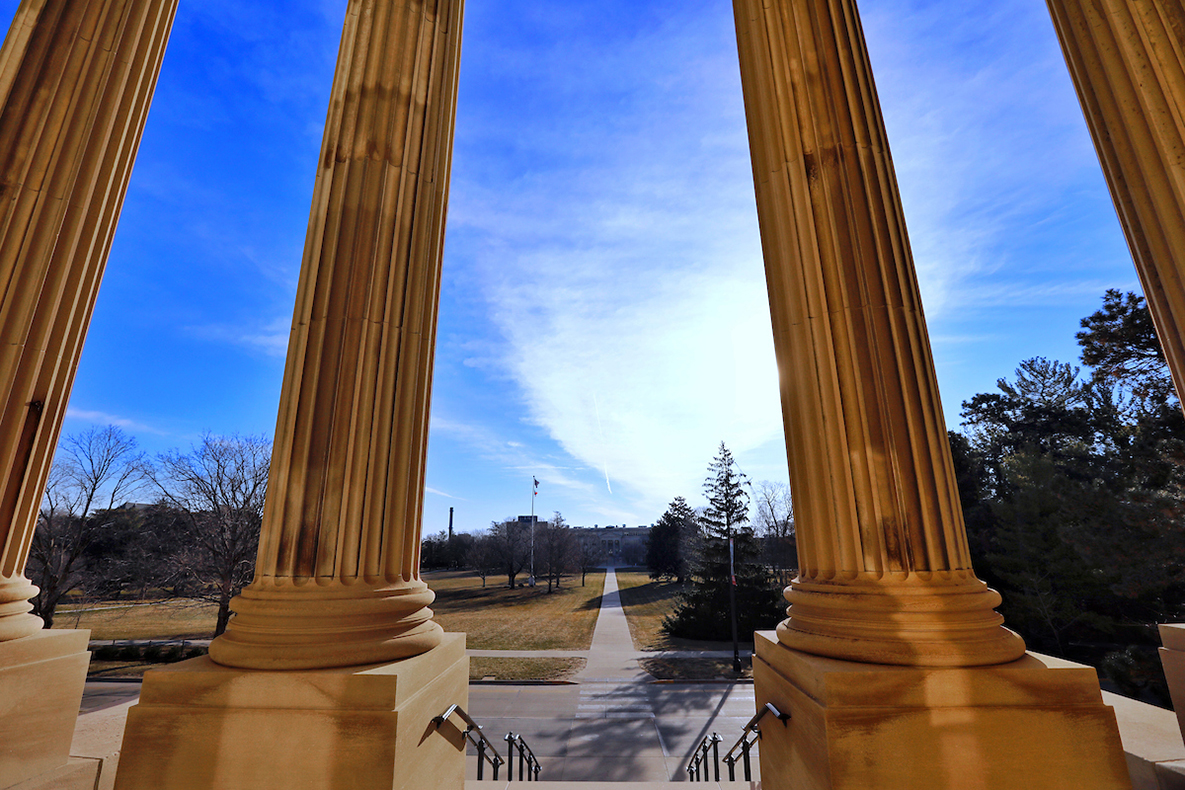When opportunity knocked, these students and faculty members opened the door.
Thanks to the generosity of LAS alumni and friends, scores of talented students and faculty in the college receive scholarships, awards and grants annually. These gifts allow them to pursue research and scholarly endeavors that impact the world around us, both near and far; to go beyond the classroom and to cross the finish line at graduation. Here’s a glimpse at a few of their stories.
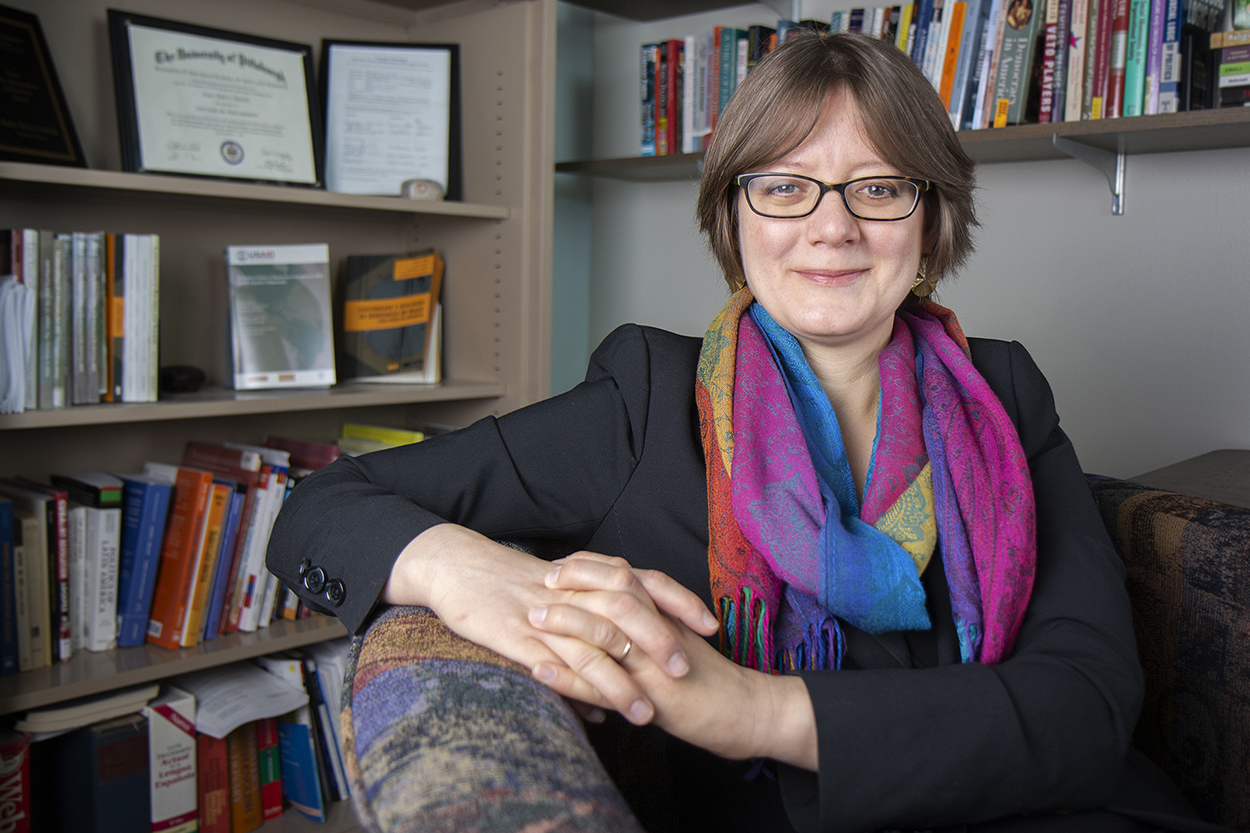
Amy Erica Smith
Receiving the LAS Dean’s Professorship in 2019 opened up a world of possibilities for Amy Erica Smith, associate professor of political science.
“Without this professorship, I would be unable to conduct this survey, so the award has been very important.”
Smith’s research examines how people around the world understand and engage in politics, especially in Latin America. For her outstanding work, she received a fellowship in 2019 at the prestigious Woodrow Wilson International Center for Scholars, a think tank in Washington, D.C., that examines global issues through independent research and offers policymakers actionable ideas. The professorship helped Smith cover expenses while she performed research in Washington, D.C.
“During my time in Washington, D.C., it was so helpful to promote my research, make connections and learn new things,” Smith said. “I think it was helpful for Iowa State as well.”
Currently, the award is allowing Smith to fund a graduate student who is surveying Catholic clergy in Latin America to determine their understanding of environmental issues and how they communicate those issues to parishioners.
“Without this professorship, I would be unable to conduct this survey, so the award has been very important,” Smith said.
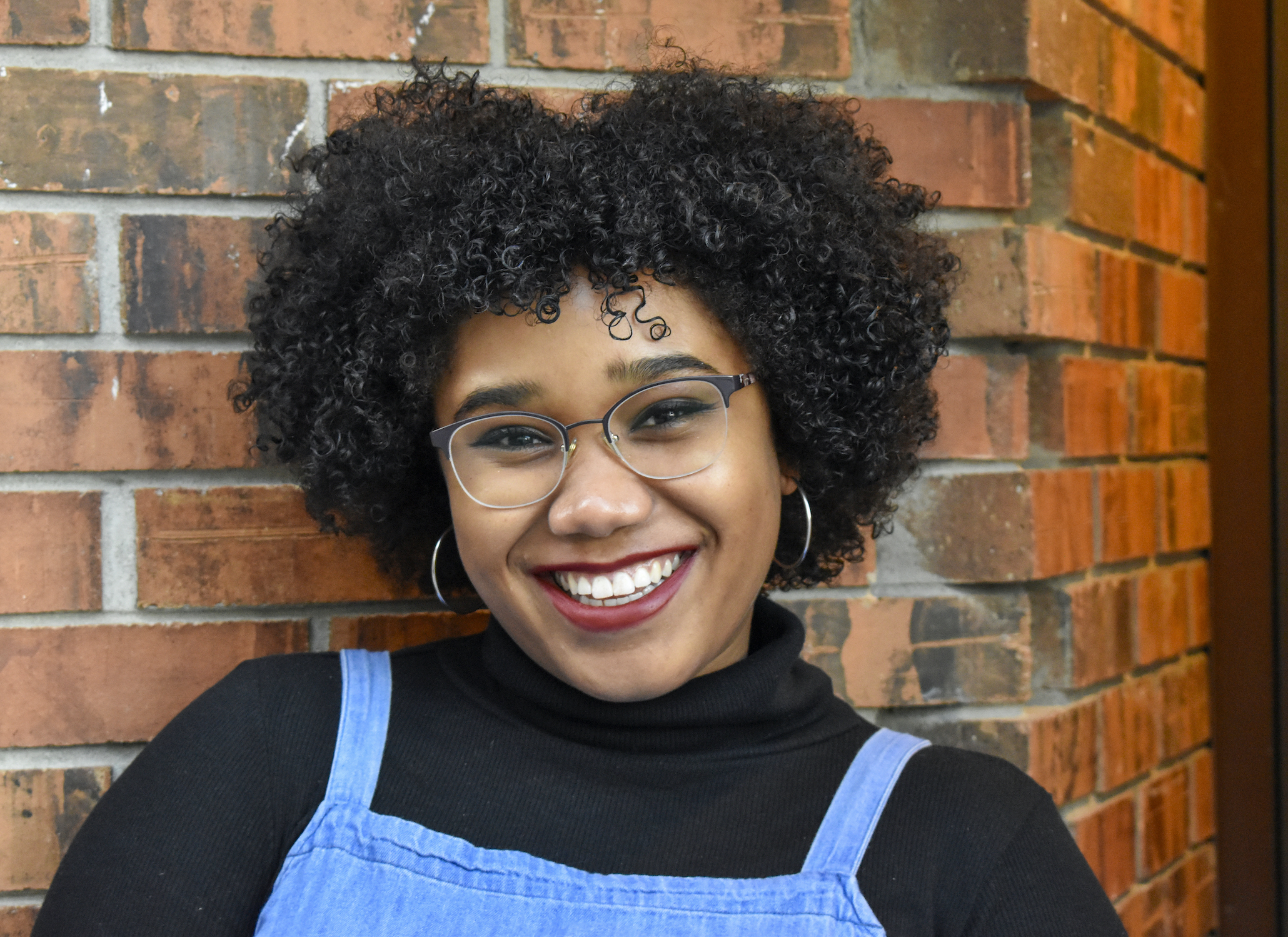
Sydni Lapsley
When Sydni Lapsley (’21 performing arts) enters rehearsal with her ISU Theatre professors, it’s usually after seeing them in class earlier that day. The mood is comfortable and familiar.
With the LAS Artist-in-Residence program, however, she gets to work with new artists from across the country.
“Working with new directors pushes us,” Lapsley said. “They expect the best from us, so we strive to give them the best. We want to show them what Iowa State is forming us to be.”
Funded by the Transforming LAS endowment, the program welcomes renowned artists to campus, such as Arpita Mukherjee from New York’s Hypokrit Theatre Company and Tiffany Johnson from Pyramid Theatre Company, Iowa’s only Black theatre organization.
“Working with new directors pushes us. We want to show them what Iowa State is forming us to be.”
No matter where she lives after graduation, Lapsley will be an artist-in-residence, too. A talented stage manager and playwright, she wants to help theatre flourish in small towns and suburbs.
“I want stories to be heard, for the unknown to be known, the unrepresented to be represented and to be a driving force in making the world better.”
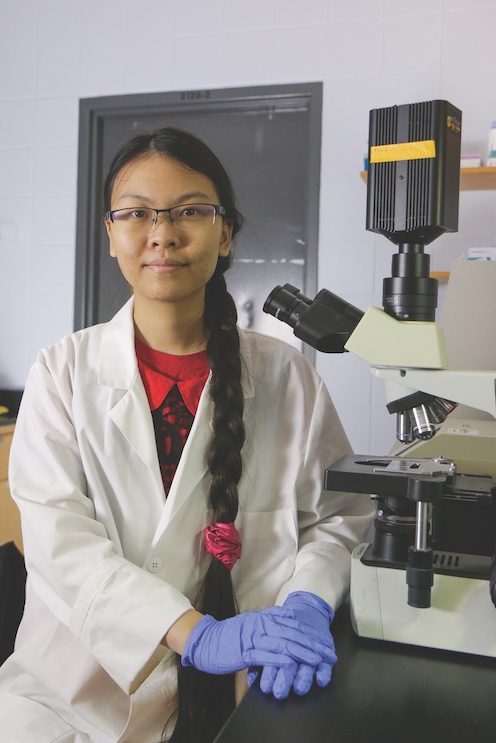
Sau Qwan Yap
Sau Qwan Yap (’21 genetics), an international student from Malacca, Malaysia, has always been fascinated by life’s most challenging biological questions.
“I hope to apply my research in ways that can improve human health and inspire discoveries.”
Now, as a recipient of the LAS Dean’s High Impact Award for Undergraduate Research, Yap is using her curiosity to study genetic risk factors for Alzheimer’s disease. In the research lab, she has learned how to do cell culture, molecular cloning, literature review and more.
“Research has trained me to be a good thinker and problem solver,” she said. “There are so many challenging problems that can arise in a project. I learned to ask good questions and come up with ways to solve them.”
Yap, who also plays the organ and the Iowa State campanile carillon in her spare time, said the LAS award helped her discover how she can use her skills to help others.
“I hope to apply my research in ways that can improve human health and inspire discoveries,” she said. “I also hope to promote diversity and representation in the scientific communities.”
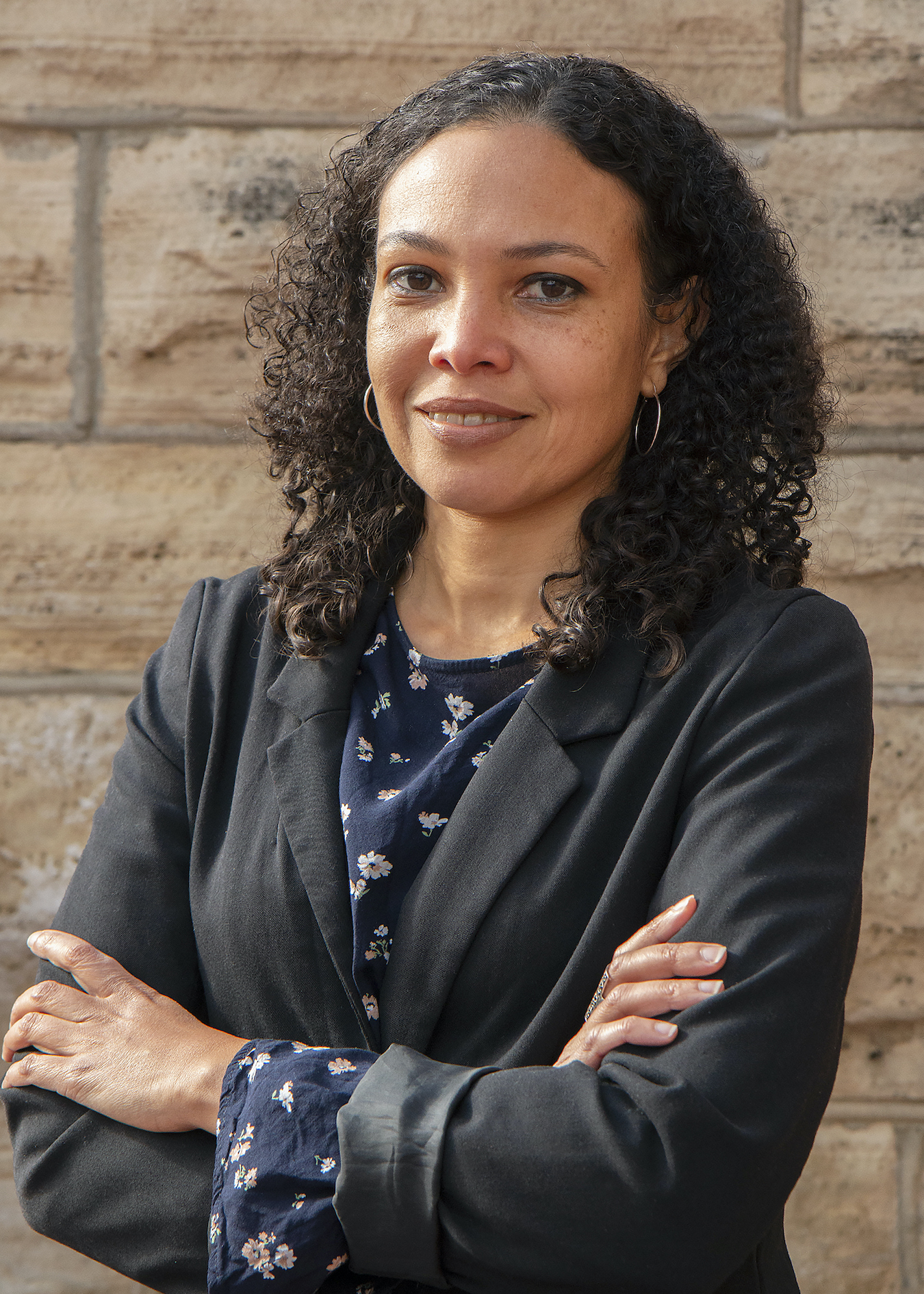
Nell Gabiam
The LAS Dean’s Emerging Faculty Leader award has generated new research opportunities for Nell Gabiam, associate professor of anthropology and political science. Gabiam is a two-time recipient of the award—in 2017 and 2020.
“The award is enabling me to get involved in a collaboration that brings the issue of refugees and the war in Syria to a much larger public than I normally would reach through academic publications.”
Gabiam’s research examines the experiences and views of Palestinian refugees in Syria who have been displaced by the war in that country to other Middle Eastern countries and Europe. Through her work, she met a Palestinian teacher and filmmaker who resided in the Palestinian refugee camp of Yarmouk, infiltrated by Syrian rebels from 2012 through 2017. He and thousands of others, including children, were unable to leave the camp. But despite their dire situation, some adults banded together to educate the kids.
“They managed to create alternative schools for the children and keep them going throughout the siege,” Gabiam said. “It’s an inspiring story of refugee resilience against incredible violence and odds.”
The LAS Dean’s Emerging Faculty Leader award allows Gabiam to reach more audiences through a new-to-her medium—documentary films.
“The award is enabling me to get involved in a collaboration that brings the issue of refugees and the war in Syria to a much larger public than I normally would reach through academic publications.”
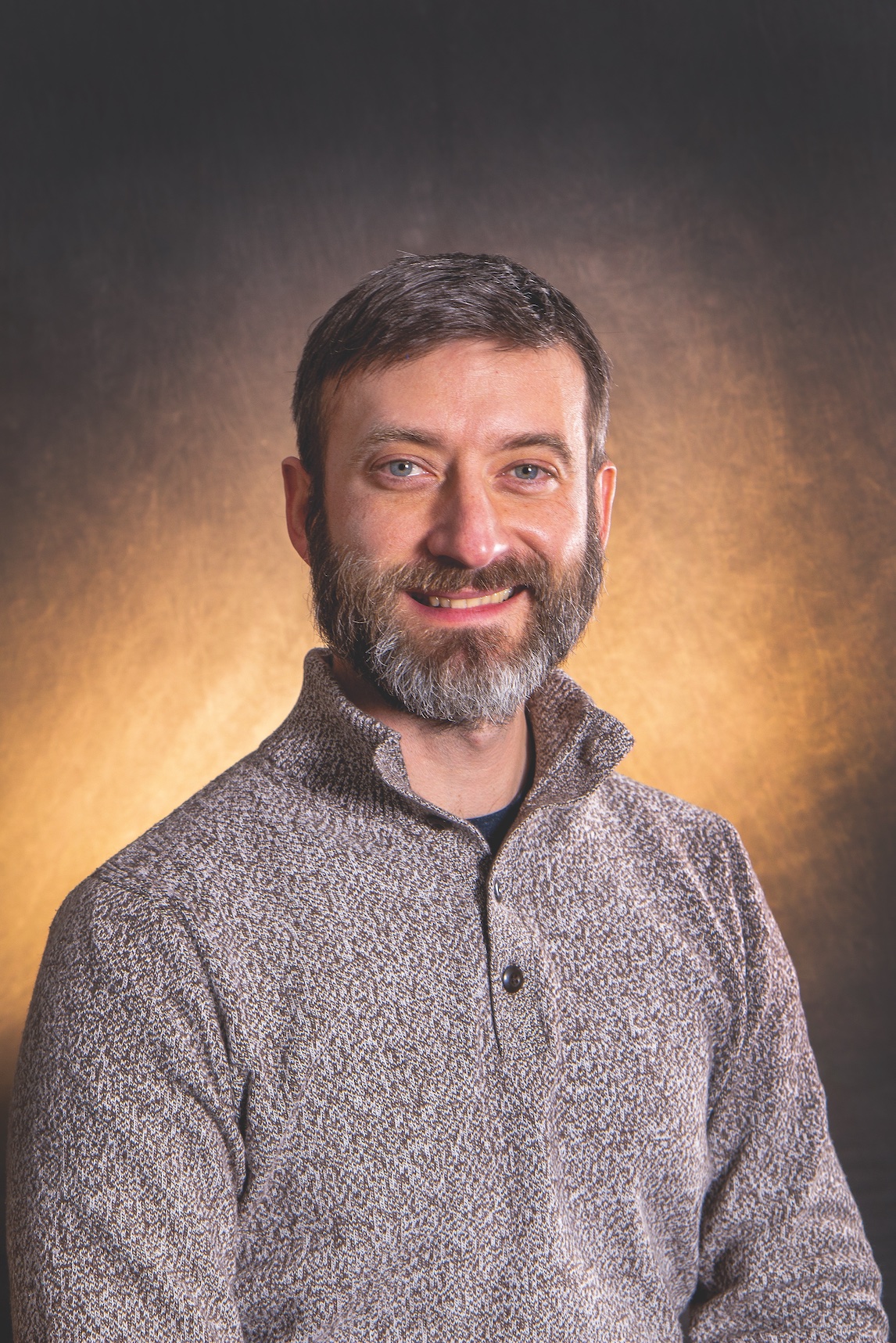
Michael Dahlstrom
Michael Dahlstrom explores novel and innovative ways that scientists can deliver complex information to anyone. Dahlstrom, director of the Greenlee School of Journalism and Communication, was named an LAS Dean’s Professor in 2018. His research focuses on how storytelling translates scientific information into understandable concepts for nonscientific people. The award has allowed Dahlstrom to explore his research on a deeper level and at a faster pace.
“This area addresses a gap in our understanding of science communication, and represents a project that I have pondered for years.”
“I was able to hire research support to conduct a systematic review of how communicating science through storytelling techniques can play a role in promoting scientific misinformation, but can also serve as a tactic to counter misinformation if used appropriately,” Dahlstrom said.
He also initiated a project that explores how imaginative science communication may help nonexpert audiences accept new ideas and possibly alter preconceived beliefs about science.
“This area addresses a gap in our understanding of science communication, and represents a project that I have pondered for years, yet not had the support to initiate,” Dahlstrom said.
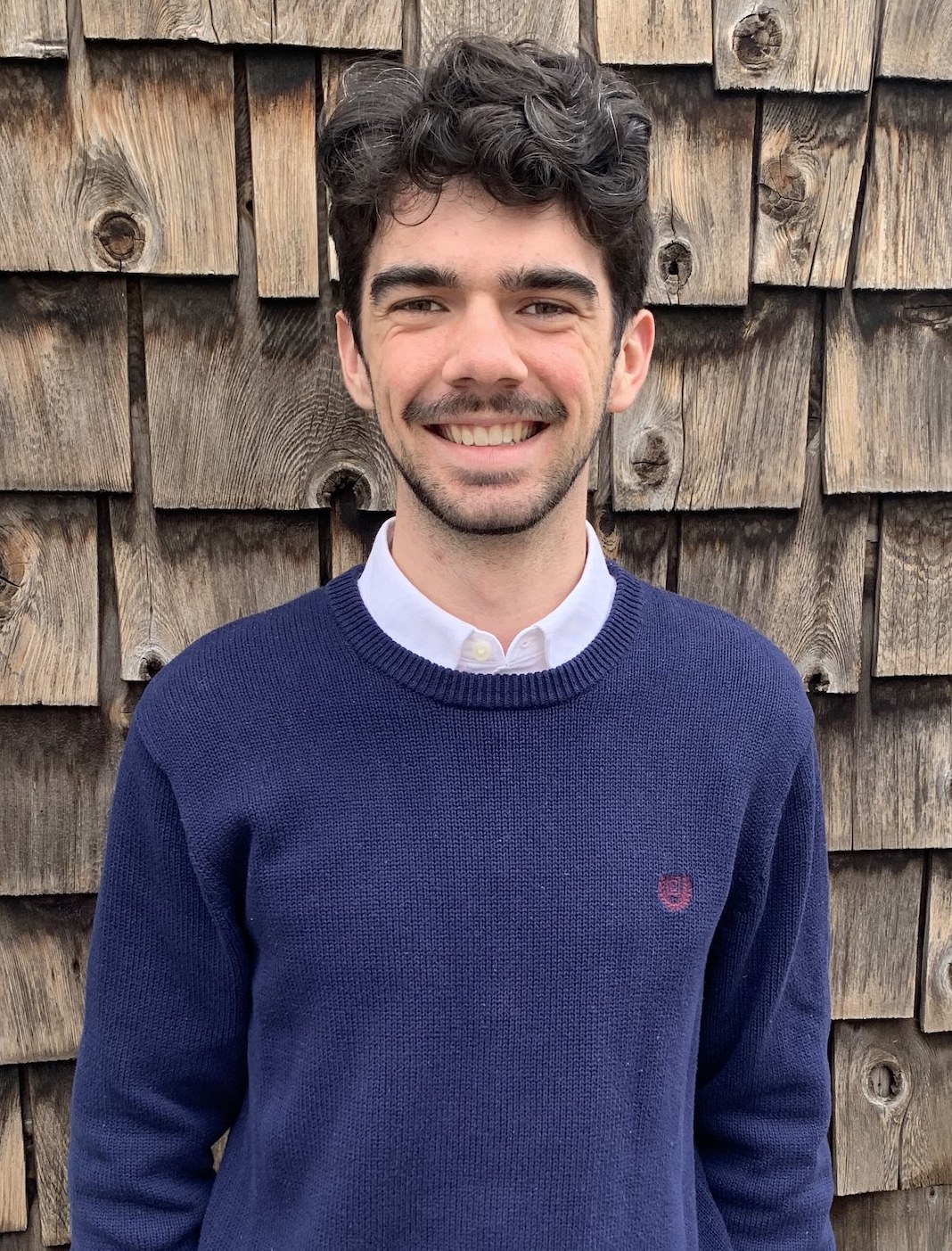
Nick Oelschlaeger
As a student teacher this year, Nick Oelschlaeger (’21 mathematics) had to learn how to manage a classroom and engage his students—all from a webcam at home.
It was a lot, even for experienced teachers. One thing that made life easier was the LAS Student Teaching Award, which provided him with a stipend.
“Thanks to the continued generosity of Iowa State and LAS, I had the opportunity to invest deeply in learning without financial stress.”
“The award was such a welcome surprise,” he said.
With his financial burden reduced, Oelschlaeger had more flexibility to strategically choose his teaching experiences. He started in January at a suburban high school in his home state of Minnesota, where he logged on remotely each day to teach integrated math classes, hold virtual office hours and mentor students. Now he is finishing the spring at an Omaha middle school. The stipend gave him more housing options, so he lives only three miles from school.
“Thanks to the continued generosity of Iowa State and LAS, I had the opportunity to invest deeply in learning without financial stress.”
It’s an investment already yielding returns for his own students.
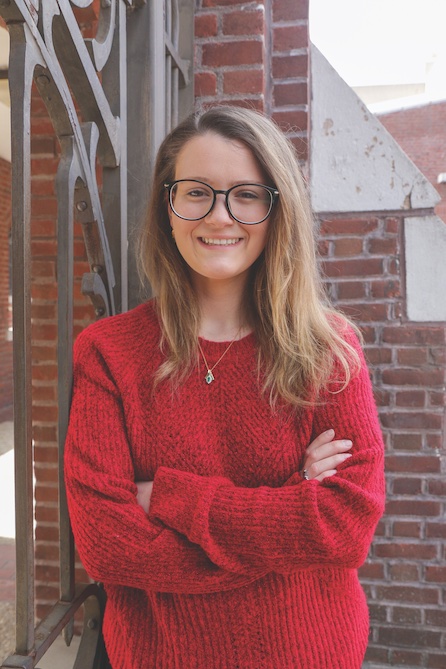
Rachel Bale
Rachel Bale knew paying for college as a single mother would be challenging.
When she received the Lucille Drey Scholarship, she cried on the spot. The scholarship, funded by LAS alumna Becky Kresowik, helps parents earn a college degree.
“I am so grateful because this shows people believe in me and my success,” Bale said. “Being a parent in college is not a detriment. It’s an advantage because I am so determined to succeed.”
Bale (’21 psychology) balances raising her daughter Alice with online classes, undergraduate research and working for an academic journal.
“Most nights, I put Alice to bed, then sneak out of her room for more studying, quiz-taking and writing,” Bale said.
“Being a parent in college is not a detriment. It’s an advantage because I am so determined to succeed.”
As a former certified nursing assistant, Bale discovered a passion for older people with memory loss. Her goal is to become a professor and conduct research that will benefit aging adults. One day, she hopes to start her own scholarship.
“Donating to students at Iowa State matters,” she said. “I can finish my degree because of the scholarships I’ve received. Thank you.”
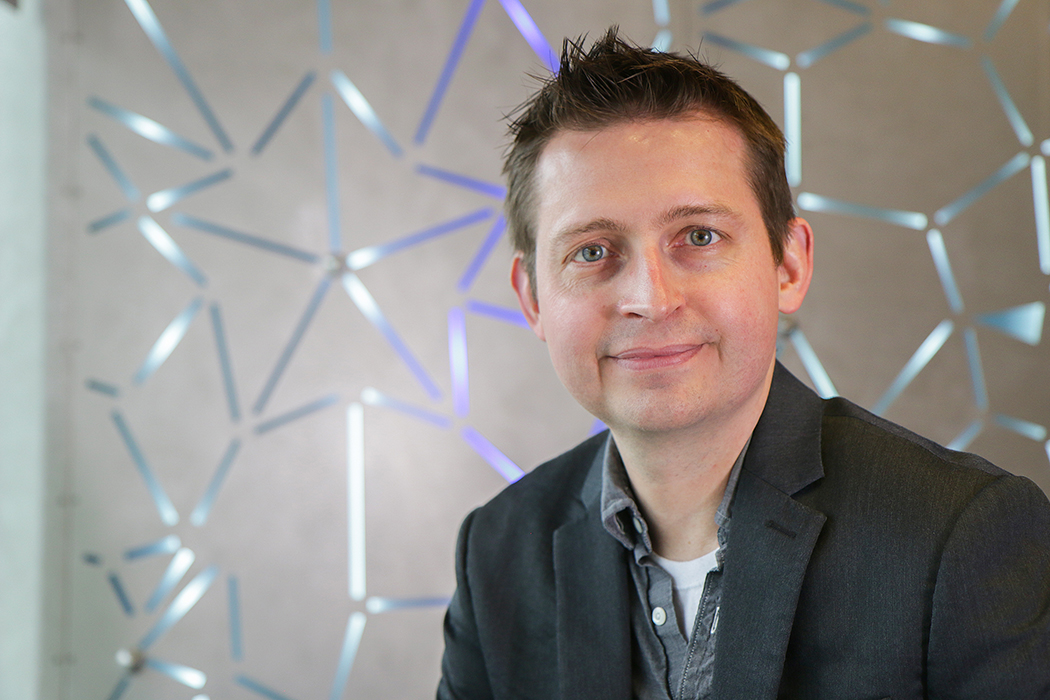
Jared Anderson
Jared Anderson, named the Alice Hudson Professor of Chemistry in 2020, leads a laboratory which focuses on separation science and sample preparation. He regularly collaborates with academic research groups across the globe and consults with the food/flavor, biomedical, agricultural, pharmaceutical and petrochemical industries to develop separation and sample preparation methodologies. For example, Anderson is currently researching how to selectively isolate circulating tumor DNA from blood or plasma, and determine its mutational status using isothermal amplification techniques.
“Many of the technologies that result from our research are of interest to companies to solve pressing societal issues.”
In 2019, Anderson received the LAS Dean’s Emerging Faculty Leader Award. The award not only allows Anderson to broaden his groundbreaking research, it gives him an opportunity to develop promising student scientists.
“The unique training afforded to my students makes them very competitive and highly sought after upon finishing their degrees at Iowa State,” Anderson said. “This award has helped to support students by paying their salaries and allowing them to get hands-on experience in the laboratory.”
The impact of Anderson’s research is felt well beyond campus. He works closely with the Iowa State University Research Foundation to file invention disclosures and patents on new technologies.
“Many of the technologies that result from our research are of interest to companies to solve pressing societal issues,” Anderson said.
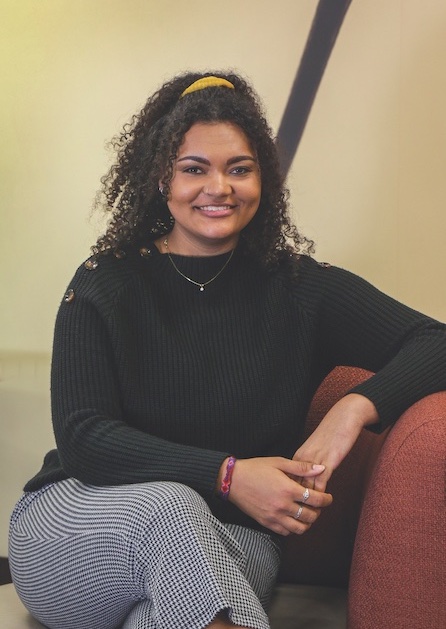
Maya Walker
As an emergency room scribe at MercyOne Des Moines Medical Center, Maya Walker assists doctors with their notes and charts while gaining clinical experience for medical school.
“Scholarships helped me gain experience to further my career without worrying about finding a part-time job that pays well.”
But buying gas for those many round trips from Ames to Des Moines adds up. LAS scholarships helped fill the gap—by filling her tank.
“Scholarships helped me gain experience to further my career without worrying about finding a part-time job that pays well,” she said.
LAS also helped Walker (’21 biology) take another trip—to Ireland. The chance to study abroad as a science major was a key reason why she chose Iowa State.
Walker wants to show others a world of opportunities, too, and increase diversity among health professionals. Inspired by her dad, a high school teacher, she has worked with WiSE to share science with underrepresented elementary school children.
“It is powerful for them to see someone who looks like them and see they can pursue careers and education in science,” she said.
Story by Stacey Maifeld and Paula Van Brocklin.
